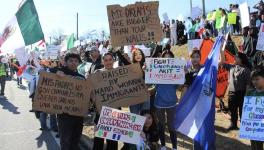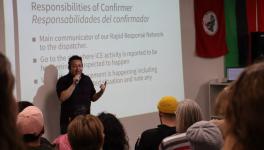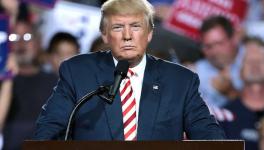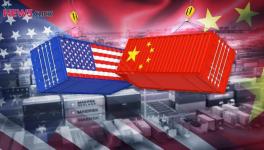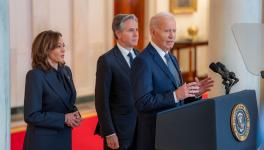'He's Declaring War on Panama's People': Unions on Rubio’s Visit
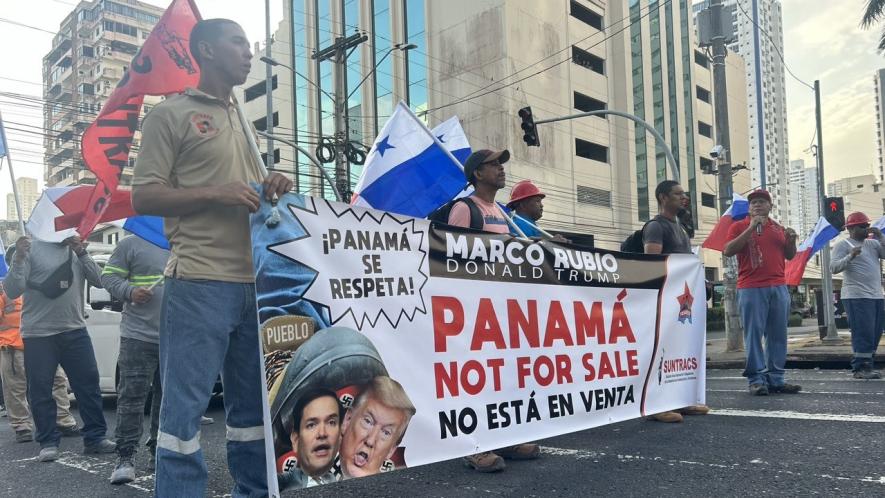
Panamanian workers take the streets during Marco Rubio's visit with President Mulino. Photo: SUNTRACS
US Secretary of State Marco Rubio traveled to Panama on February 1, to personally “negotiate” with Panamanian President José Mulino on the impositions that the Trump administration is demanding from the Central American country.
It seems that the main objective of Rubio’s visit was to drastically limit the agreements that Panamanian authorities reached with Chinese authorities in 2017 to improve trade with Chinese companies.
Rubio has said that China’s influence in Panama is unacceptable and that if this does not change, the United States “will take the necessary measures to protect its rights.”
According to the Trump administration, Panama has violated the terms of the treaty that returned the canal to the Central American state in 1999. Recently, Trump made the claim that the canal is being administered by China. This has been flatly denied by Panamanian authorities.
US strategic interests infringe on Panamanian sovereignty
For the time being, it seems that Rubio’s pressure had an effect.
After a meeting lasting a little over an hour on Sunday, February 2, Panamanian authorities announced that the 2017 agreements with China would not be renewed.
In addition, a series of arrangements were reached that social movements argue will jeopardize Panamanian sovereignty:
- The United States will further supervise the Darién, a jungle area through which thousands of migrants from South America and the world pass every month on their journey to the United States.
- The US is exploring the establishment of a military airstrip in the Darién to “improve” its massive deportation project. This in effect would serve as a US military base.
- Mulino will provide Panamanian intelligence on money laundering to US authorities.
- Mulino promised to reconsider the concession of two Panamanian ports to a Hong Kong-based company.
- Mulino agreed to the creation of a technical commission to evaluate the current status of the Panama Canal.
- The Panama Canal Authority informed the US Secretary of State that it would work with the US Navy to “optimize the priority transit of its vessels through the Panama Canal.”
These agreements demonstrate a significant increase in US influence in Panama’s national matters. However, despite Washington’s satisfaction with the meeting, not everyone was excited about Rubio’s visit.
Panamanian workers resist US violations of sovereignty
Days before Rubio’s visit, students from the state university clashed with the police during a protest against the Secretary of State’s trip to Panama.
On the day of the visit, several popular and union groups called for a “patriotic day” to oppose the expansionist intentions of the United States and the surrendering attitude of the Mulino government. Slogans such as “One territory, one flag,” “This country is not for sale,” and “Panama is not for sale,” were shouted throughout the demonstrators’ march. Several protesters burned images of Trump and Rubio.
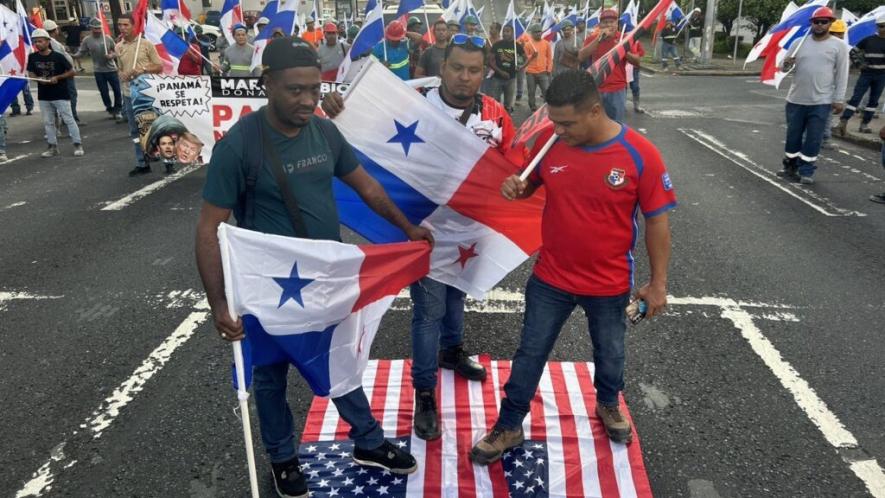
Workers organized with SUNTRACS demonstrate against US interference in Panamanian national affairs. Photo: SUNTRACS
One of the most important actors in the protests against Rubio’s visit was SUNTRACS (Unified National Union of Workers of the Construction and Similar Industries), an organization with more than 40,000 members.
Its leader, Saúl Méndez, explained that despite President Mulino’s seemingly sovereign statements, his government has demonstrated a submissive stance toward US interests and has not disclosed everything discussed in the meeting:
“A refugee concentration camp is going to be created in the Darién. It is a [covert] gringo military base where US warplanes can land…to attack other Latin American peoples.”
Méndez called on “the Panamanian people to pay attention to what the government and the United States are discussing,” especially what the Trump administration announces in the coming days, as Panamanian authorities cannot be expected to be transparent concerning bilateral agreements.
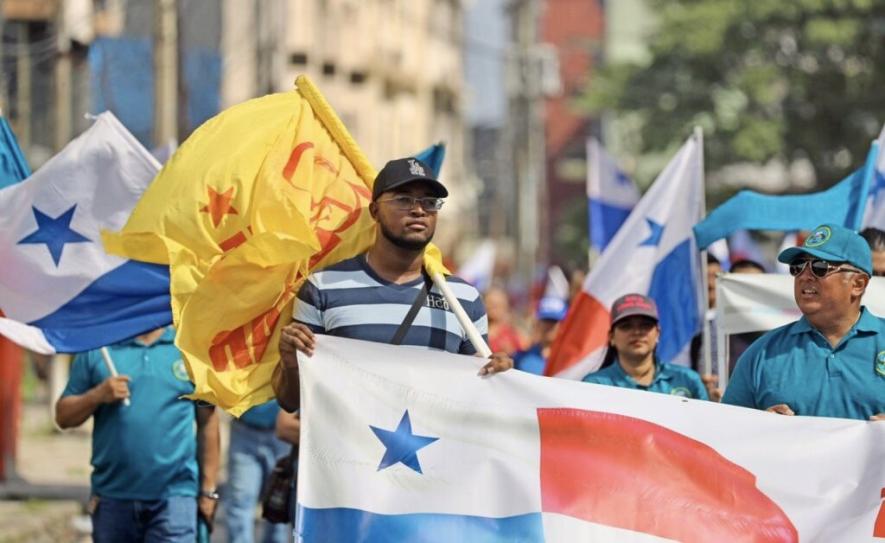
Panamanians demonstrate against US interference in Panamanian national affairs. Photo: SUNTRACS
“We will react to this situation and we repudiate Rubio’s presence in Panama,” said Méndez, because for the Secretary of State, “the sovereignty and self-determination of the Panamanian people do not matter.” He has issued an “ultimatum,” to make it clear that the Canal is a priority of the United States.
“He is declaring war on the Panamanian people,” Méndez asserted.
Rubio’s tour continues
It is no coincidence that the first trip abroad for the new top US representative is to Latin America, and specifically to Panama, a country that has always served as a significant economic and military stronghold for the United States. Panama has a special geostrategic position because it is a connection point between South and Central America and it contains the coveted canal, which connects the Pacific and Atlantic oceans. 3% of world trade transits through this channel.
Trump has repeatedly stated his opposition to the taxes that US ships must pay when transiting through Panama. He has even gone as far as threatening to “take back control of the Canal.” This refers to the period during the 20th century, when the United States controlled the Canal. In 1977, the US was forced to cede control over the Canal in the Torrijos-Carter agreements, after a long struggle for Panama’s sovereignty carried out by leftist political and popular organizations.
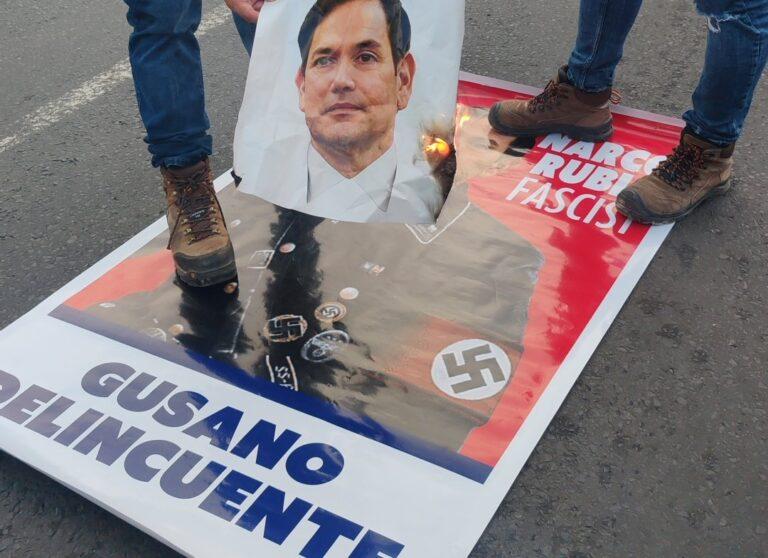
Symbolic act of rejection against Marco Rubio’s visit to Panama. Photo: SUNTRACS
For now, despite Mulino’s assurances that “The Canal will not be negotiated,” it seems that the Panamanian government will not mount greater resistance to the geopolitical ambitions of the Trump administration. Instead, the popular trade unions–who strongly condemned Rubio’s visit–have vowed to continue their fight for sovereignty and self-determination of the Panamanian people.
Meanwhile, Rubio will continue his first international tour, with planned visits to El Salvador, Costa Rica, Guatemala, and the Dominican Republic.
Get the latest reports & analysis with people's perspective on Protests, movements & deep analytical videos, discussions of the current affairs in your Telegram app. Subscribe to NewsClick's Telegram channel & get Real-Time updates on stories, as they get published on our website.









